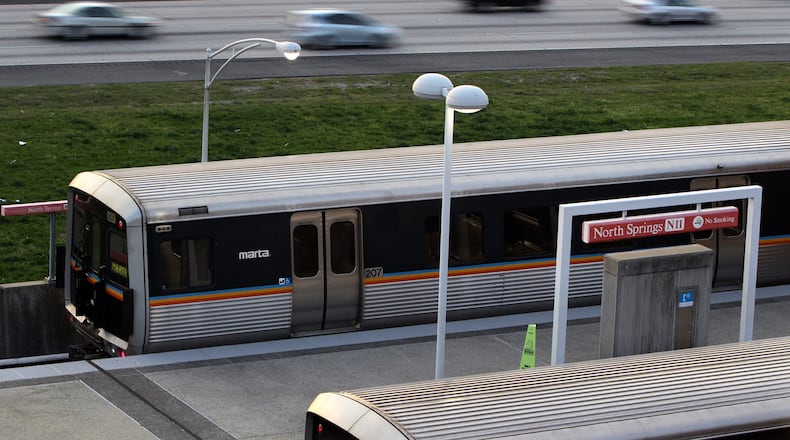This article is part of the AJC's new RE: Race reporting project, which is dedicated to covering both the tensions and the opportunities created by racial and ethnic change in Atlanta and Georgia. Author Melton Bennett responded to a request to readers from the AJC to talk about a time when they felt like an outsider. His is one of four such articles we're featuring this week.
Melton Bennett, Cumming
Taking the MARTA train from the mostly white northern suburbs down to the airport captures a cross section of the racial makeup, and divide, that exists in Atlanta.
As my fellow white passengers and I pull out of North Springs station, we add more white passengers at the next few stations as we pull toward Buckhead. As we enter the heart of the city, African-Americans begin entering the train, and at Five Points, the racial makeup of the train has flipped to predominantly African-American.
I watch as the African-American passengers entering the train look for seats next to other African-Americans, and I watch white passengers seek out other white seat mates. I see the uncomfortable looks of white people who think the black kid dressed like a gang member is going to sit next them, and then the sigh of relief as he passes by.
Mostly, it is then that I notice differences between the people who joined me at my embarkation and the people who have joined in the city. It’s not uncommon for me to watch an impromptu hip hop performance as the train treks south, a performance replete with phrases about violence, sex and race.
The language changes, with poor grammar and offensive profanity being expelled by these groups of passengers, speaking loudly to be heard by everyone, almost as if they must exhibit some cultural difference to a captive audience to make sure they are seen and heard.
The behavior can seem aggressive, with the occasional comment from one of the African-Americans, “Man, we gotta chill. These crackers don’t like that [expletive].” I absolutely feel like an outsider. There is nothing I can say. There is nothing I can do.
Inside, I want to tell them that we are all alike, that sharing constructive conversations and experiences is what builds a bridge to understanding. The hard-core profanity, the unsavory references to females and the derogatory names for white people just force the bridge to be longer.
Of course, this does not represent all African-Americans, in the city or even on the train, but this is not an uncommon experience on my MARTA journey. As I trek down the city, I see the racial differences, see the divides, hear the pain in the rap songs and conversations.
As the train crosses Auburn Avenue, I often wonder what MLK Jr would like to have experienced on the MARTA train in 2017.
» Would you like to take part? Tell us your story
The RE: Race project will officially launch on Thursday with an article on the dramatic demographic change taking place in Cobb County. An interactive tool will enable you to track demographic change for every county in the state from 1990 through 2050.
Note: Comments for this feature are being moderated by AJC editors.
About the Author
Featured


